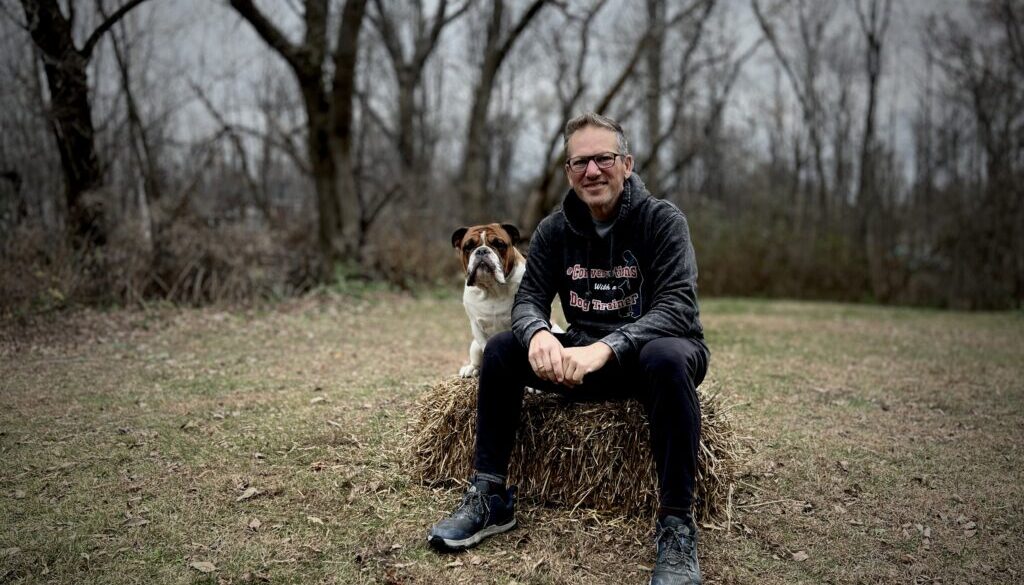How to manage Dog Aggression Montreal Dog Training
Living with a Dog Aggressive Dog
Dog owners living with canines who have dog aggression often tell me how stressful their walks and outings are prior to training.
The common things that I hear are people being very selective about the time of day as well as locations they choose to go out into with their dogs.
They are constantly in fear of coming across other dogs on their walks and are very limited I where they can go.
Walks are very stressful.
Of course, making good environmental decisions is always wise, but living successfully with a dog aggressive dog goes far beyond this approach.
The single most important thing any dog owner can do is to train their dog properly.
This goes for any dog owner and any type of dog and 100 times more so for those who have dog aggressive dogs.
Managing Dog Aggression
Managing a dog aggressive dog takes a good understanding of canine psychology and instincts.
It also requires a handler to be very environmentally aware and to make sure that their obedience and means of communicating with their dog are very clear.
When you are in charge of a dog aggressive dog you have to see yourself as upper management. You give the dog direction, you make good choices as to what your employee is capable of and how much responsibility you place on them (environmental choices) and you make sure that you are a good team leader that can direct and motivate your employee.
Success or failure rests on your shoulders.
Can you “Fix ” or “Cure” Dog Aggression
You cannot fix or cure a truly dog aggressive dog.
If the dog is shy/nervous/fearful, and yet social this is a very different thing.
I’ve worked with thousands of such dogs who learned that defensiveness was not required and they became absolute “social butterflies” as a result of training.
The want to connect, engage and play with other dogs was in them to begin with (sometimes dormant). Either through the result of lack of proper socialization or bad experiences with other dogs they learned to prioritize safety over social interaction.
Do not confuse this with a truly dog aggressive dog.
In the case of the fearful or nervous dog who is indeed social, we simply work on confidence building skills and obedience.
With a dog aggressive dog, you are not going to cure or fix this behaviour because it is rooted in the dog’s character.
Meaning this is how some dogs see the world. They are adversarial and combative with other dogs.
Believing you can change is like believing you can control the weather.
We cannot alter the course of nature. All we can do is be well informed and take proactive measures to create the best possible outcome.
There are trainers who prey upon naïve dog owners hopes and dreams claiming they can change/fix/cure real aggression and the results are always a disaster. It is only a matter of time before these poor folks find out the hard way.
Why are dogs dog aggressive?
Dogs are aggressive for a multitude of reasons.
It can be genetic
It can be learned through bad experience, improper socialization and harsh or traumatic experiences.
It then gets compounded time and time again reinforcing a belief system in the dog’s mind.
Aggression is an instinct that we value or demonize depending on the circumstance.
- The dog protects you from a while animal while out hiking or camping – the dog is a hero.
- The dog bites the intruder who broke into your home – the dog is a hero.
- The dog wants to attack another dog on the sidewalk – aggression is bad.
- The dog wants to bite the pizza delivery person – aggression is bad.
Of course these examples are simplistic, but I think it illustrates that aggression cannot only be useful but desirable and other times it is completely inappropriate.
Helping owners of a giant dog aggressive Great Dane
Lexi’s owners came to me completely overwhelmed with their dog’s behaviour.
They are nice people, great dog owners with two other dogs at home who are completely fine around other dogs. They were not prepared for Lexi’s attitude towards the world and had tried to train her with another training school before coming to me. Needless to say it didn’t work out and I was contacted to consult with them and see what can be done to help with Lexi’s behaviour.
The videos here represent Lexi in training with me – and more importantly show her working with her owners at our transfer lesson.
I take great pride in not only the quality of instruction the dogs receive while in for training but equally in teaching dog owners how to maintain their dog’s training once it is complete.

